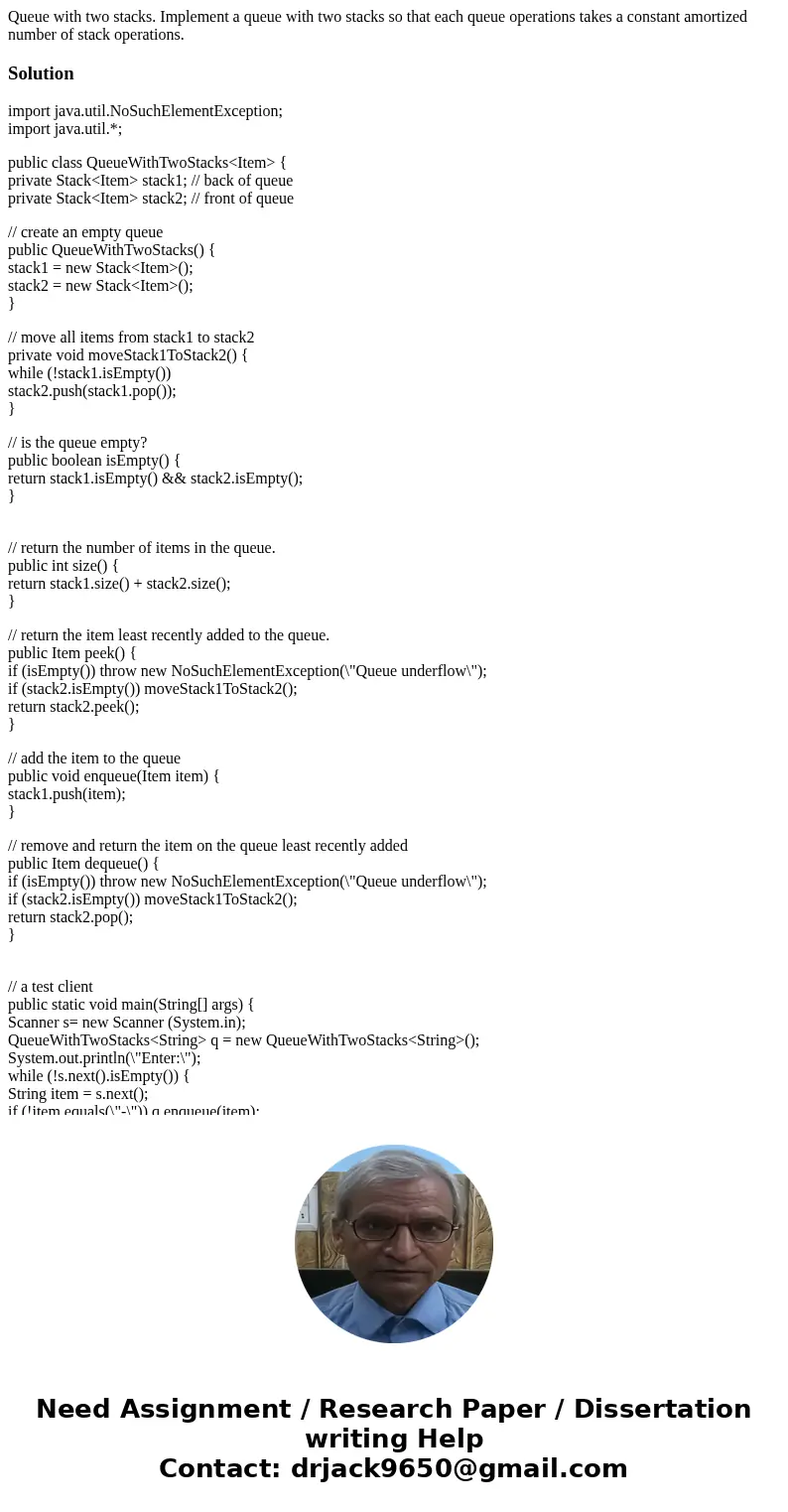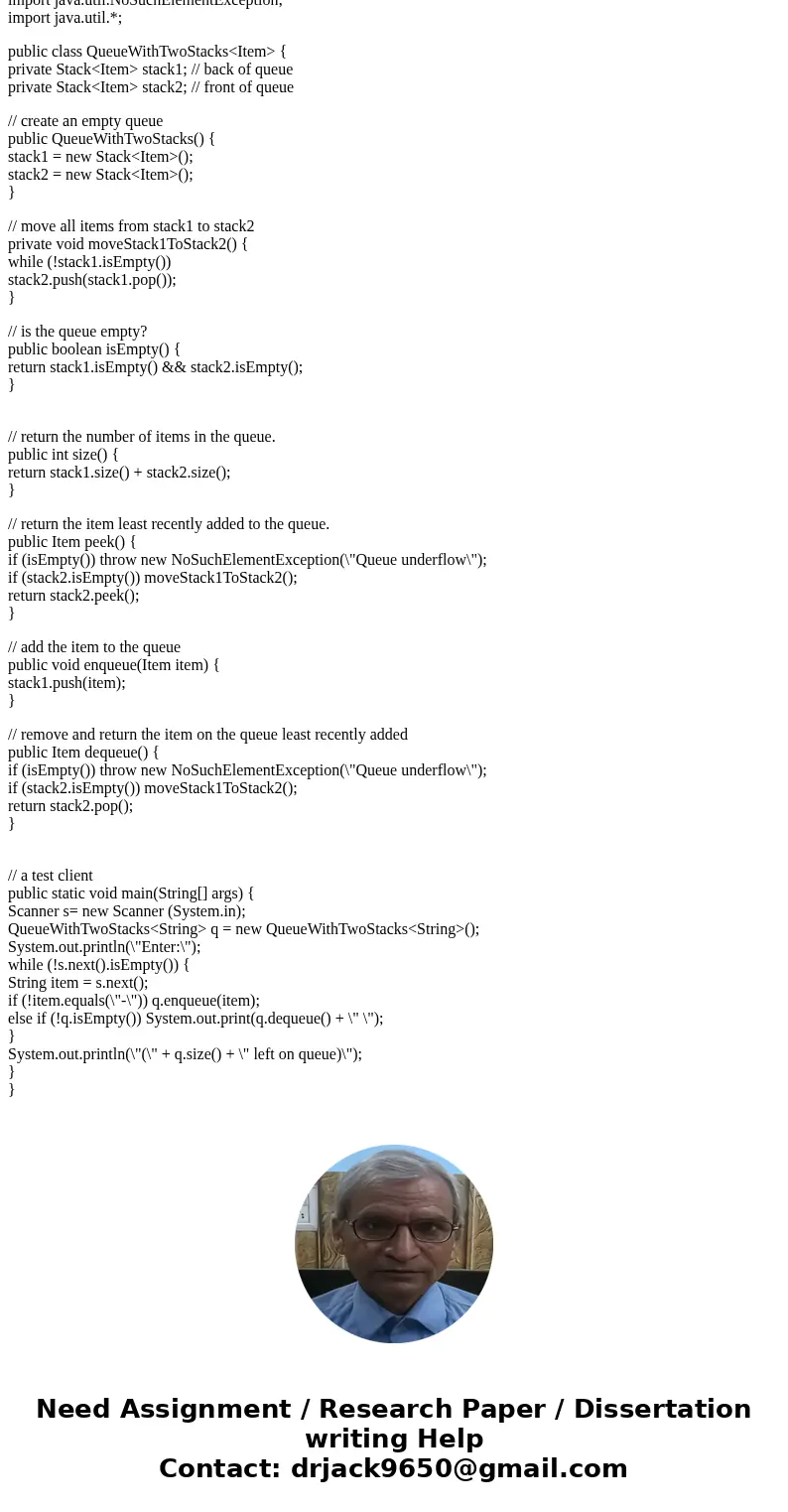Queue with two stacks Implement a queue with two stacks so t
Solution
import java.util.NoSuchElementException;
import java.util.*;
public class QueueWithTwoStacks<Item> {
private Stack<Item> stack1; // back of queue
private Stack<Item> stack2; // front of queue
// create an empty queue
public QueueWithTwoStacks() {
stack1 = new Stack<Item>();
stack2 = new Stack<Item>();
}
// move all items from stack1 to stack2
private void moveStack1ToStack2() {
while (!stack1.isEmpty())
stack2.push(stack1.pop());
}
// is the queue empty?
public boolean isEmpty() {
return stack1.isEmpty() && stack2.isEmpty();
}
// return the number of items in the queue.
public int size() {
return stack1.size() + stack2.size();
}
// return the item least recently added to the queue.
public Item peek() {
if (isEmpty()) throw new NoSuchElementException(\"Queue underflow\");
if (stack2.isEmpty()) moveStack1ToStack2();
return stack2.peek();
}
// add the item to the queue
public void enqueue(Item item) {
stack1.push(item);
}
// remove and return the item on the queue least recently added
public Item dequeue() {
if (isEmpty()) throw new NoSuchElementException(\"Queue underflow\");
if (stack2.isEmpty()) moveStack1ToStack2();
return stack2.pop();
}
// a test client
public static void main(String[] args) {
Scanner s= new Scanner (System.in);
QueueWithTwoStacks<String> q = new QueueWithTwoStacks<String>();
System.out.println(\"Enter:\");
while (!s.next().isEmpty()) {
String item = s.next();
if (!item.equals(\"-\")) q.enqueue(item);
else if (!q.isEmpty()) System.out.print(q.dequeue() + \" \");
}
System.out.println(\"(\" + q.size() + \" left on queue)\");
}
}


 Homework Sourse
Homework Sourse